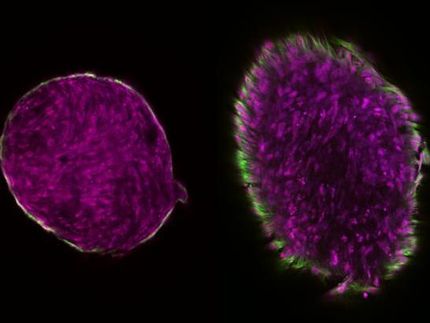Replicating liver cells for fast drug testing
Advertisement
Scientists have developed a new technique that produces a user friendly, low cost, tissue-engineered pseudo-organ. The chip-based model produces a faithful mimic of the in vivo liver inside a scalable fluid-handling device, demonstrating proof of principle for toxicology tests and opening up potential use in drug testing and personalised medicine.
The work was done by researchers based at the Wake Forest Institute for Regenerative Medicine and the Virginia Tech-Wake Forest University School of Biomedical Engineering and Sciences. They created a device architecture within which were a series of 3D liver cell constructs enclosed in a biopolymer that closely mimics the extra-cellular matrix (ECM). Surrounding the printed cells with this ECM - which the body uses to support cells in the liver - makes this model a more realistic model of the cells in vivo.
The technique uses photopatterning to produce defined 3D constructs in a microfluidic system to probe the construct quickly. "It's basically scaled-down pluming" explains Adam Hall, an author on the paper. "This paper describes fairly hefty devices - a few mm - but we're working to scale this down considerably."
Collaboration proved to be the key to success; "The challenges were not too significant once Adam and I merged our areas of expertise." adds Aleksander Skardal, another author on the paper. "With his background in devices and microfabrication, and my background in biomaterials and biofabrication, the two technologies integrated rather well."
The 3D construct device offers a new tool in the development of drug treatments. At present, 2D testing in vitro doesn't replicate the activity of the cells, and until now 3D systems have not provided adequate interactions of cells with the ECM, or offered particularly high-throughput testing.
This is where the combination of technologies has proven vital. "3D constructs are less effective if you can't probe them quickly" continues Hall. "And without some important task, microfluidics are just a fun party trick."
























































